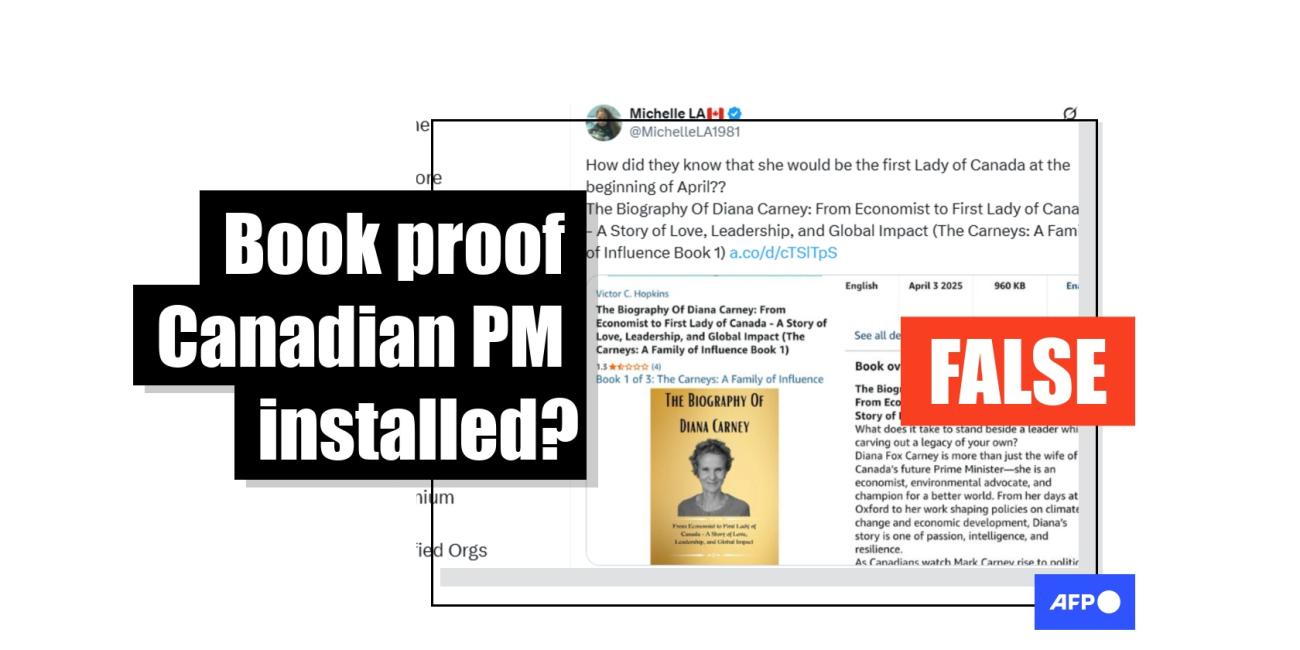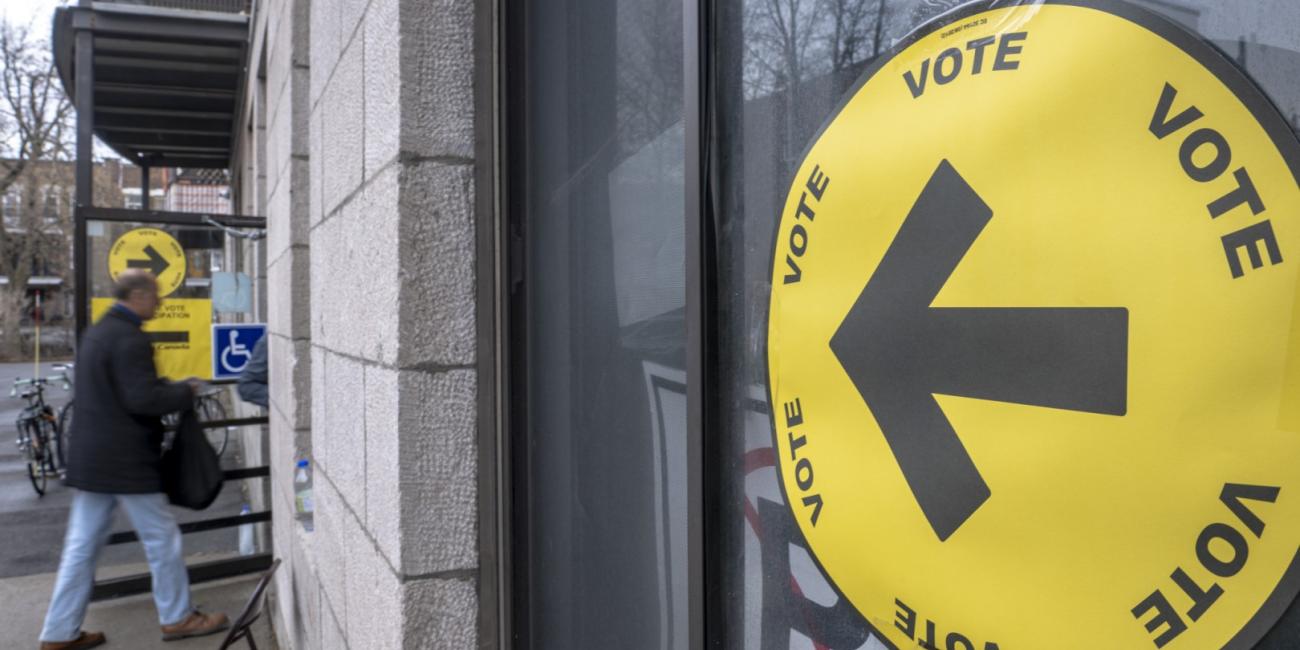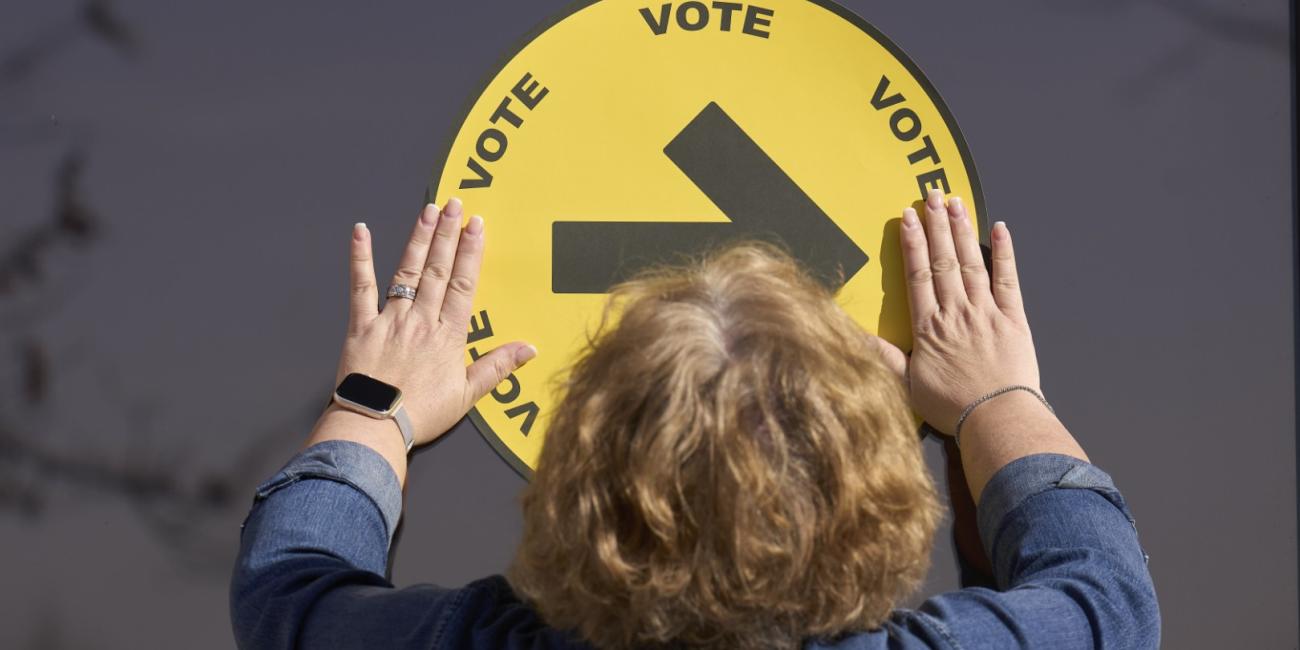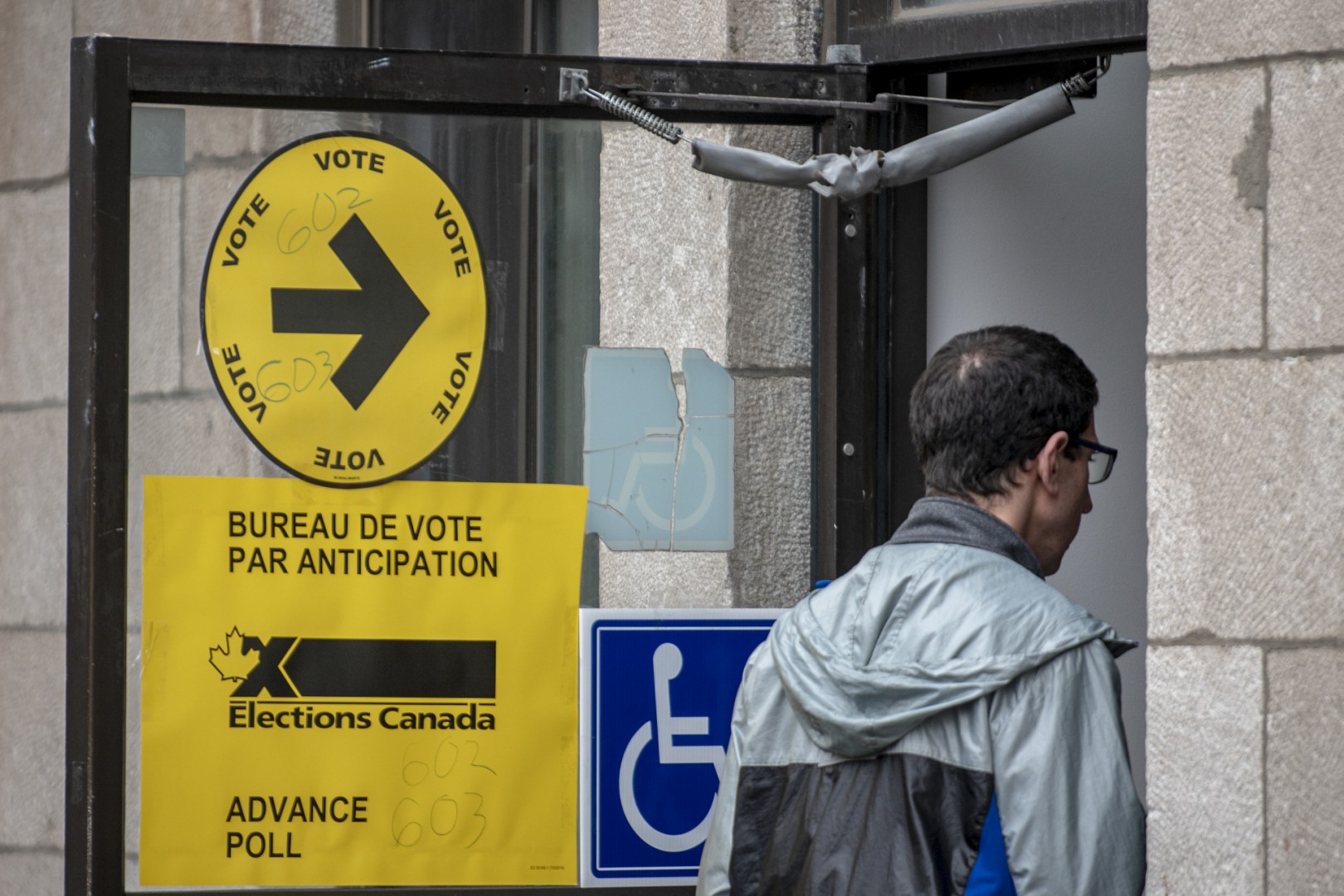
Receipt of multiple voter information cards in Canada is not evidence of fraud
- Published on April 25, 2025 at 18:55
- 4 min read
- By Marisha GOLDHAMER, AFP Canada
"I saw on social media that people who are registered with the Liberal party are getting 2 voter information cards, but I didn't believe it till today," says text shared as a screenshot in an April 15, 2025 Facebook post.
It goes on to claim that after registering with the Liberal party to vote in the March leadership contest, the person was then mailed two cards for the federal election. "I am truly scared that this election is being manipulated!" it exclaims.
"The steal is on," said another post sharing the text, referencing a common refrain from those who refused to accept the result of the 2020 presidential election in the United States.
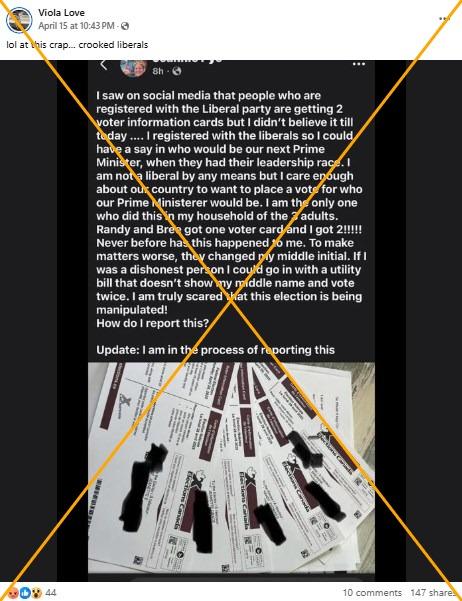

The claim spread across platforms, with users resharing the text claimed to stem from the account of someone who says she lives in the province of Alberta. AFP could not see the post directly due to the privacy settings of the account and the person did not respond to AFP's request for comment.
Canada will vote in an April 28 snap election called just days after Mark Carney was sworn in as the new prime minister. Some 7.3 million Canadians have already cast ballots during the advance voting period -- a record high turnout for the country with 28.9 million eligible voters.
The campaign has been dominated by economic and sovereignty threats from US President Donald Trump, which upended the usual multi-party battles to control parliament. This year, polling points to a two-party Liberal-Conservative race, with smaller parties facing significant setbacks.
The Canadian Digital Media Research Network reported on April 25 that, despite high levels of trust among Canadians in the integrity of the 2025 election, it witnessed a "noticeable surge" in claims questioning the security and integrity of the voting process in the home stretch of the election (archived here).
AFP has debunked claims that voting in pencil opens the door to fraud and marks from poll workers invalidate ballots. The claims about people receiving multiple voter information cards to encourage fraudulent votes are similarly incorrect.
"Receiving more than one voter information card does not mean that you can vote more than once," Elections Canada, the non-partisan agency that administers elections, told AFP in an April 24 email.
The agency added: "When someone votes in person or asks for a special ballot, an election worker crosses their name off the list of electors to show that the person has voted and cannot vote again in the election."
Elections Canada said that a "printer error" resulted in certain electors "receiving a duplicate voter information card" but stressed it has safeguards in place "to make sure that only eligible individuals can vote, and that they vote only once and only in the electoral district where they are registered."
For example, Canadians must provide proof of identity and home address at the polling place. There are three ways to do so (archived here):
- Bring a photo identification issued by the provincial, territorial or federal government, such as a driver's license.
- Bring two official documents that include your name and address. One of these documents can be the voter information card while the other could be a bank statement or utility bill.
- Declare your identity and address in writing and have someone who knows you and who is assigned to your polling station vouch for you. This person can only serve this role for one voter and must also prove their identity and address.
Holly Ann Garnett (archived here), co-director of the Electoral Integrity Project, which studies elections around the world, said that the information card is "not your license to vote" and expressed confidence in the protocols implemented by Elections Canada to ensure people are only casting one ballot.
The information used to decide who should receive official election mailers is taken from the National Register of Electors. This database is regularly updated from several sources including the Canada Revenue Agency, provincial and territorial election agencies and vital statistics bureaus.
Elections Canada said the register "enjoys a high degree of accuracy" despite having to account for all the Canadians who move, gain citizenship, turn 18 or die.
Garnett said when the information proves imperfect, officials who maintain the voter rolls rightly "air on the side of caution," trying to avoid accidentally disenfranchising an eligible voter.
Inviting the dead to vote
Additional claims warning of potential fraud and blaming the ruling Liberal Party for sending voter information cards to people who are deceased circulated in French.
Elections Canada said it is an unfortunate occurrence when such mailers are sent, but it is likely "because we had not received information about the death in time to update the lists of electors."
Anyone presenting the card at the polls must offer additional identification to be issued a ballot.
Instances of voter fraud are rare in Canada, with election officials referring any irregularities to the Commissioner of Canada Elections.
Those who violate federal election laws may face fines and even jail time (archived here).
More of AFP's reporting on misinformation impacting the 2025 Canadian federal election is available here.
Copyright © AFP 2017-2026. Any commercial use of this content requires a subscription. Click here to find out more.
Is there content that you would like AFP to fact-check? Get in touch.
Contact us
